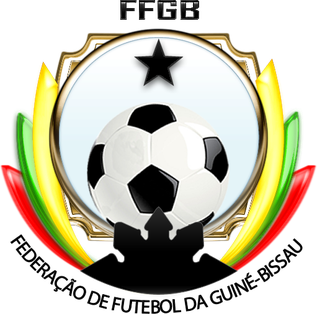This is a list of museums in Guinea-Bissau .
This is a list of museums in Guinea-Bissau .

Guinea-Bissau, officially the Republic of Guinea-Bissau, is a country in West Africa that covers 36,125 square kilometres (13,948 sq mi) with an estimated population of 2,026,778. It borders Senegal to its north and Guinea to its southeast.

Bissau is the capital and largest city of Guinea-Bissau. As of 2015, it had a population of 492,004. Bissau is located on the Geba River estuary, off the Atlantic Ocean, and is Guinea-Bissau's largest city, major port, its administrative and military center.

The Republic of Guinea-Bissau follows a nonaligned foreign policy and seeks friendly and cooperative relations with a wide variety of states and organizations. France, Portugal, Angola, Brazil, Egypt, Nigeria, Libya, Cuba, the Palestine Liberation Organization, Ghana, and Russia have diplomatic offices in Bissau.

The Guinea-Bissau national football team represents Guinea-Bissau in men's international association football and it is controlled by the Football Federation of Guinea-Bissau, The team has never qualified for the FIFA World Cups but qualified for the Africa Cup of Nations four times, making their debut in 2017. The team is a member of both FIFA and Confederation of African Football (CAF).

The National People's Assembly is Guinea-Bissau's unicameral legislative body.

Guinea-Bissau has sent athletes to every Summer Olympic Games held since 1996, although the country has never won an Olympic medal. No athletes from Guinea-Bissau have competed in any Winter Olympic Games.
ISO 3166-2:GW is the entry for Guinea-Bissau in ISO 3166-2, part of the ISO 3166 standard published by the International Organization for Standardization (ISO), which defines codes for the names of the principal subdivisions of all countries coded in ISO 3166-1.

The following outline is provided as an overview of and topical guide to Guinea-Bissau:
Education in Guinea-Bissau is compulsory from the age of 7 to 13. In 1998, the gross primary enrollment rate was 53.5 percent, with higher enrollment ratio for males compared with females.

Republic of Guinea-Bissau passports are issued to citizens of Guinea-Bissau to facilitate international travel. A passport is not required for Guinea-Bissau citizens to travel to member states of the Economic Community of West African States (ECOWAS).

The Guinea-Bissau women's national football team represents Guinea-Bissau in international women's football. It is governed by the Football Federation of Guinea-Bissau. It has played in two FIFA-recognised matches, both in 2006 against Guinea. The country also has a national under-17 side which participated in the 2012 Confederation of African Football qualifiers for the FIFA U-17 Women's World Cup. Football is the most popular women's sport in the country. A women's football programme was established in 2004, followed by the creation of a women's national league.
Bissau-Guinean Americans are Americans of Bissau-Guinean descent. As was the case with almost all current West African coastal countries, the first people in the United States from present-day Guinea-Bissau were imported as slaves. Thus, in the 21st century, there are many African Americans who have discovered, through DNA analysis, they descend mainly or at least partly, from Bissau-Guinean enslaved people.

Guinea-Bissau competed at the 2016 Summer Olympics in Rio de Janeiro, from August 5 to 21, 2016. It was the nation's sixth consecutive appearance at the Summer Olympics.
Mass media in Guinea-Bissau includes print, radio, television, and the Internet. "The Conselho Nacional de Comunicação Social regulates the press." The government-run Guinea-Bissau National Radio began in 1973 and Guinea-Bissau Television began in 1987.

Guinea-Bissau–Spain relations are the bilateral and diplomatic relations between these two countries.